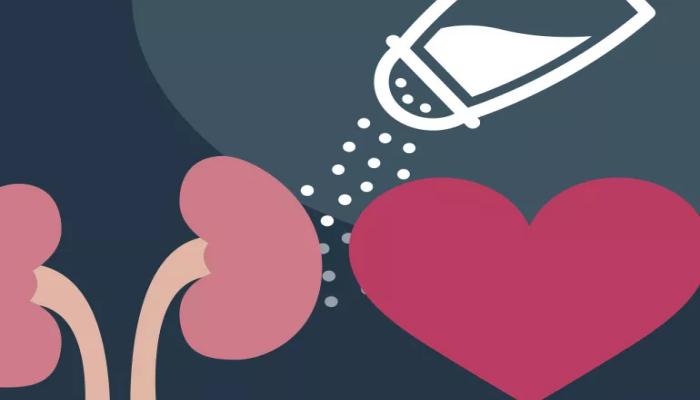Hypertension, commonly known as high blood pressure, is a pervasive health issue affecting millions worldwide. Among the many contributing factors, high salt intake stands out as a significant and modifiable risk factor. This article delves into the mechanisms by which excessive sodium consumption leads to hypertension, its implications for public health, and strategies for managing dietary salt intake.
The Role of Sodium in The Body
Sodium is an essential electrolyte that plays a vital role in various physiological functions, including:
Fluid Balance: Sodium helps regulate the balance of fluids in the body, influencing blood volume and pressure.
Nerve Function: It is critical for transmitting nerve impulses, affecting muscle contractions and overall neurological function.
Cellular Function: Sodium is involved in cellular transport mechanisms that maintain the health of cells.
While sodium is necessary for health, excessive intake can lead to adverse effects, particularly regarding blood pressure regulation.
SEE ALSO: How Much Weight Loss Lowers Blood Pressure
Mechanisms Linking High Salt Intake to Hypertension
1. Increased Blood Volume
One of the primary mechanisms through which high salt intake leads to hypertension is the effect on blood volume. When sodium is consumed in excess, the kidneys retain more water to dilute the sodium concentration in the bloodstream. This retention leads to an increase in blood volume, which raises blood pressure. This phenomenon is often referred to as volume overload.
2. Vascular Resistance
High salt intake can also lead to increased vascular resistance. Sodium affects the functioning of the vascular system in multiple ways:
Endothelial Dysfunction: Excessive sodium can impair endothelial function, leading to reduced production of nitric oxide (NO), a molecule that helps blood vessels relax. This dysfunction can increase vascular resistance and contribute to hypertension.
Smooth Muscle Contraction: High sodium levels can stimulate the contraction of vascular smooth muscle cells, further increasing peripheral resistance and raising blood pressure.
3. Activation of the Renin-Angiotensin-Aldosterone System (RAAS)
The RAAS plays a crucial role in blood pressure regulation. High salt intake can disrupt this system:
Renin Release: Sodium overload may trigger the release of renin from the kidneys, leading to increased production of angiotensin II, a potent vasoconstrictor.
Aldosterone Secretion: Angiotensin II stimulates aldosterone secretion, promoting sodium and water retention, thereby increasing blood volume and pressure.
4. Impact on Hormonal Regulation
Sodium intake can also influence the secretion of various hormones involved in blood pressure regulation, including:
Natriuretic Peptides: High salt intake may reduce the secretion of natriuretic peptides, which normally promote sodium excretion and help lower blood pressure.
Insulin Resistance: Excessive sodium consumption is linked to insulin resistance, which can further exacerbate hypertension through various metabolic pathways.

HighSalt Intake Causes Hypertension
Epidemiological Evidence
Numerous epidemiological studies have established a clear link between high salt intake and hypertension. Key findings include:
Population Studies: Large-scale studies consistently show that populations with higher salt consumption have higher rates of hypertension. For example, the INTERSALT study demonstrated a significant correlation between sodium intake and blood pressure across different ethnic groups and countries.
Longitudinal Studies: Research indicates that reducing salt intake can lead to significant reductions in blood pressure, particularly in individuals with hypertension. The DASH (Dietary Approaches to Stop Hypertension) study highlighted that reducing sodium intake, combined with a diet rich in fruits and vegetables, can effectively lower blood pressure.
Recommended Sodium Intake Levels
Health organizations worldwide provide guidelines for sodium intake to mitigate the risk of hypertension. The American Heart Association (AHA) recommends that adults consume no more than 2,300 mg of sodium per day, with an ideal limit of 1,500 mg for optimal heart health.
However, the average sodium intake in many populations far exceeds these recommendations, contributing to the hypertension epidemic.
High-Salt Diets: Sources And Consumption Patterns
Common Sources of Sodium
Understanding where sodium comes from is essential for effective dietary management:
Processed Foods: Many processed and packaged foods are high in sodium, including snacks, canned soups, and deli meats.
Restaurant Meals: Foods prepared outside the home often contain elevated levels of salt for flavor enhancement and preservation.
Condiments: Common condiments like soy sauce, ketchup, and salad dressings can significantly contribute to overall sodium intake.
Consumption Patterns
High salt intake is often linked to modern dietary patterns characterized by convenience and processed foods. A shift towards a more sedentary lifestyle and reliance on fast food has led to increased sodium consumption. This trend necessitates public health interventions aimed at reducing salt intake in the population.
Public Health Implications
The relationship between high salt intake and hypertension has significant public health implications. Elevated blood pressure contributes to substantial healthcare costs and morbidity. Effective strategies to reduce salt intake can yield considerable health benefits, including:
Reducing Hypertension Rates: Lowering average population sodium intake can lead to significant reductions in hypertension prevalence.
Preventing Cardiovascular Diseases: By controlling blood pressure, reduced sodium intake can decrease the incidence of heart disease and stroke.
Enhancing Quality of Life: Lower blood pressure can lead to a better quality of life for individuals, reducing the burden of chronic disease.
Conclusion
The connection between high salt intake and hypertension is well-established, making it a critical area for public health intervention. Understanding the mechanisms by which sodium affects blood pressure can empower individuals to make healthier dietary choices and advocate for systemic changes in food production and policy. By prioritizing sodium reduction strategies, we can collectively work towards a healthier future, reducing the burden of hypertension and its related complications.
